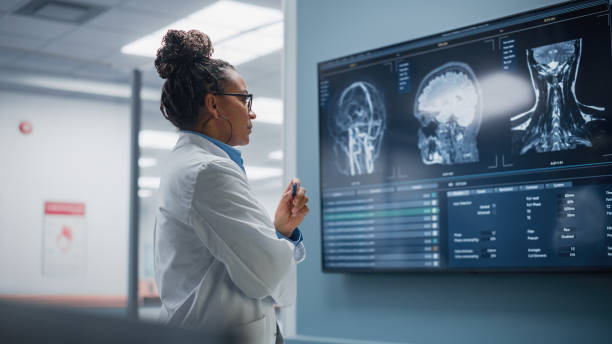Radiography is an indispensable branch of healthcare that continues to grow in importance across Kenya. With advancements in technology and an increasing focus on patient care, the need for highly skilled radiographers is greater than ever. Radiographers use imaging techniques such as X-rays, MRI, CT scans, and ultrasound to assist in the diagnosis and treatment of patients. With the healthcare sector expanding rapidly in Kenya, the demand for qualified professionals in radiography has surged.
In this article, we explore the top universities in Kenya offering accredited radiography courses. These institutions provide world-class education and hands-on experience, ensuring that graduates are well-equipped to meet the challenges of a dynamic and ever-evolving field. Whether you’re an O-level graduate or a diploma holder looking to advance your career, pursuing radiography can open up a wide range of rewarding career opportunities.
Table of Contents
- Why Choose Radiography as a Career in Kenya?
- Overview of Radiography Education in Kenya
- Top Universities Offering Radiography Programs in Kenya
- University of Nairobi
- Aga Khan University
- Jomo Kenyatta University of Agriculture and Technology (JKUAT)
- Moi University
- Kenyatta University
- Program Admission Requirements
- Future Career Opportunities for Radiography Graduates
- Conclusion
- Frequently Asked Questions (FAQs)
Why Choose Radiography as a Career in Kenya?
Radiography is an attractive career option for many reasons. Firstly, it plays a vital role in healthcare by assisting medical professionals in diagnosing and monitoring illnesses. The demand for radiographers is high in Kenya, as more medical facilities adopt advanced imaging technologies to improve patient care. As such, radiography professionals are highly sought after both in public and private healthcare sectors.
Here are some reasons why pursuing radiography in Kenya is a great decision:
- Job Opportunities: With Kenya’s healthcare system growing rapidly, there are increasing job prospects in both the public and private sectors. Hospitals, clinics, diagnostic imaging centers, and radiology departments across the country are constantly in need of qualified radiographers.
- Competitive Salaries: Radiographers in Kenya enjoy relatively high salaries compared to many other healthcare professions. Depending on experience and the type of institution they work for, radiographers can earn competitive pay.
- Diverse Specializations: Radiographers can specialize in different imaging modalities, such as X-rays, CT scans, MRIs, or even emerging technologies like nuclear medicine and interventional radiology.
- Impactful Work: Radiographers play an essential role in patient care. Through imaging, they help diagnose conditions ranging from broken bones to life-threatening diseases like cancer, making their work invaluable in the medical field.
Overview of Radiography Education in Kenya
In Kenya, universities offering radiography programs combine theoretical learning with hands-on clinical training. Aspiring radiographers must complete a minimum of four years of study to earn a degree or diploma. Advanced postgraduate programs in radiology and imaging are also available for those who wish to specialize further.
Students pursuing radiography courses are exposed to a wide range of medical imaging techniques, radiology physics, patient care, and clinical practice. The courses are designed to ensure students gain both technical proficiency in operating medical imaging equipment and the ability to work effectively with patients and healthcare teams.
Top Universities Offering Radiography Programs in Kenya
Here’s a list of some of the top universities in Kenya that offer radiography courses. These institutions are recognized for their excellent academic standards, advanced medical facilities, and well-established clinical training partnerships.
1. University of Nairobi (UON)
The University of Nairobi (UON) stands out as one of Kenya’s premier institutions, offering top-tier radiography education. UON’s Department of Diagnostic Imaging and Radiation Medicine, located in the prestigious Kenyatta National Hospital, provides an exceptional learning environment for aspiring radiographers.
- Programs Offered:
- Master of Medicine in Radiation Oncology: A program focused on using radiation therapy in cancer treatment.
- Master of Medicine in Radiology: Specializes in diagnostic radiology, equipping students with advanced imaging techniques.
- Fellowship in Interventional Radiology: For medical professionals looking to advance their expertise in minimally invasive radiology procedures.
Why Choose University of Nairobi? UON’s partnership with Kenyatta National Hospital allows students to engage in clinical placements at one of Kenya’s largest and most renowned teaching hospitals. This practical exposure ensures that students gain valuable, real-world experience in diagnostic imaging.
2. Aga Khan University
Aga Khan University offers a specialized Master of Medicine program in Imaging and Diagnostic Radiology. The university is known for its global outlook and emphasis on high-quality education, and its radiography program is no exception.
- Programs Offered:
- Master of Medicine in Imaging and Diagnostic Radiology: A comprehensive four-year program designed to teach students advanced imaging techniques and radiology practices.
- Key Learning Areas:
- Medical Imaging Physics
- Imaging Techniques and Radiography
- Computed Tomography (CT)
- Magnetic Resonance Imaging (MRI)
- Ultrasonography
- Nuclear Medicine
- Interventional Radiology
Why Choose Aga Khan University? Aga Khan University is known for its cutting-edge teaching methods and exposure to the latest imaging technologies. Students are taught by experienced professionals and have access to well-equipped medical facilities.
3. Jomo Kenyatta University of Agriculture and Technology (JKUAT)
At JKUAT, students can pursue a Bachelor of Radiography degree, which spans four years and combines academic instruction with clinical training. The university is recognized for its focus on technological innovation and scientific advancement.
- Program Offered:
- Bachelor of Radiography: A comprehensive program designed to prepare students for a career in diagnostic imaging, with a focus on patient care and radiographic techniques.
Why Choose JKUAT? JKUAT integrates modern technology and practical clinical experience into its curriculum. Students gain proficiency in various imaging techniques and acquire the necessary skills to work in healthcare environments.
4. Moi University
Moi University offers a Master of Medicine in Radiology and Imaging. This advanced program is ideal for those who have completed their undergraduate education in radiography or related fields and wish to specialize further.
- Program Offered:
- Master of Medicine in Radiology and Imaging: This program spans four years and provides in-depth training in diagnostic imaging, radiology techniques, and patient management.
Why Choose Moi University? Moi University is one of Kenya’s leading institutions for medical education, and its radiology and imaging program is highly regarded for its academic rigor and clinical training.
5. Kenyatta University
Kenyatta University offers specialized training in Clinical Radiology and Imaging Services, focusing on diagnostic radiology. While it primarily trains medical students, the university also plans to offer advanced courses in radiology.
- Planned Programs:
- Higher Diploma in Sonography
- Master of Medicine in Diagnostic Radiology
Why Choose Kenyatta University? Kenyatta University is known for its commitment to excellence in medical education. The university’s focus on diagnostic radiology ensures that students receive quality training in the latest imaging technologies.
Program Admission Requirements
Each university may have different entry requirements for radiography programs. However, the general requirements for a Bachelor’s in Radiography include:
- KCSE or Equivalent: A minimum of C+ in KCSE, with strong passes in Mathematics, Physics, Chemistry, and Biology.
- Diploma Holders: Those with relevant diplomas in medical imaging or other related fields may be eligible for direct entry into the program.
- Postgraduate Programs: A relevant undergraduate degree in radiography, medicine, or a related field. Some universities may also require professional experience in the healthcare sector.
Future Career Opportunities for Radiography Graduates
Graduates of radiography programs in Kenya have access to a wide range of career opportunities in both clinical and non-clinical settings. Some potential career paths include:
- Diagnostic Radiographer: Working in hospitals, clinics, and diagnostic centers to perform imaging procedures such as X-rays, MRIs, and CT scans.
- Radiation Therapist: Specializing in the use of radiation therapy for cancer treatment.
- Sonographer: Specializing in ultrasound imaging for diagnostic purposes.
- Medical Imaging Physicist: Ensuring the safe and effective use of medical imaging technology.
- Health Administrator: Managing radiology departments in hospitals and clinics.
- Education and Research: Teaching radiography at universities or conducting research in medical imaging technologies.
Radiography is a promising and growing field in Kenya’s healthcare sector. With many universities offering specialized programs and cutting-edge facilities, students have ample opportunities to pursue a career in this vital field. The demand for radiographers in Kenya continues to rise, making it a highly rewarding profession with great job prospects and career advancement opportunities.
If you’re passionate about healthcare and technology, pursuing a radiography course at one of these top universities in Kenya can be the first step toward a fulfilling career that contributes directly to improving patient care.





